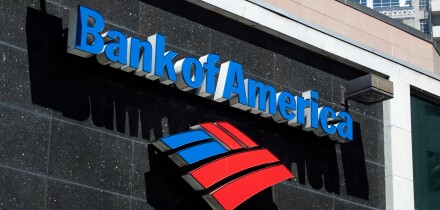Calpine Corp.'s $2 billion debtor-in-possession financing broke Friday and the second lein traded up to 103, bucking any concerns about its pricing and relatively light security. One investor noted that the loan is not as well secured as some of Calpine's pre-petition secured debt and said pricing should be higher than the "B" tranche's current LIBOR plus 2 1/4% spread.
But that did not seem to matter. The $400 million "B" tranche broke at 101 1 /8 and the second lien broke at 102 3/8 and moved up to 103 1/2. The deal was so popular in syndication that $50 million was shifted from the second lien to the cheaper "B" tranche so the company would pay less interest. Pricing on the $600 million second lien was cut 50 basis points to LIBOR plus 4%. The deal also consists of a $1 billion revolver priced at LIBOR plus 2 1/4%.
There were some naysayers. "A lot of people don't know what they are getting into," warned the investor of playing in the DIP. "I was surprised pricing got so low. A lot of people think DIPs are risk free." Contrary to traditional DIP financings, the Calpine DIP loan is subordinate to a large amount of secured debt. This secured debt includes project financing debt at the subsidiaries of Calpine Generating Company (Calgen), Calpine Construction Finance and Rocky Mountain Energy Center.
Jeffrey Wolinsky, an analyst at Standard & Poor's, said Calgen has project debt of $2.4 billion, while Calpine Construction Corp. has $800 million of debt and Rocky Mountain has $600 million. There are a variety of other project financing subsidiaries that are also senior to the DIP, said Wolinsky. "Typically you don't have so much secured debt above the DIP," he said, adding that Calpine's capital structure is more complex than at other bankrupt companies. The investor said the company structured the DIP in this way to avoid battles with the pre-petition secured lenders. Calpine is already facing objections from the second-lien debt holders, who have challenged the DIP on the grounds that their collateral interests are not protected. A Calpine spokeswoman declined comment.
The large amount of debt that comes ahead of the DIP means it is unlikely investors will get a full recovery on the financing, said the investor. "I don't think it is a slam dunk that the DIP will be repaid fully," he said. "It is odd that there are so many assets that it is junior to. Usually DIPs are massively over secured."
But others point out that the DIP is well covered by Calpine's Geysers facilities, which are geothermal plants on which the DIP lenders have a direct lien. The Geysers are the largest supplier of renewable power to the California market, according to a company presentation, and are economically feasible through 2050. "The crown jewel of Calpine is the Geysers facility," said Wolinsky, adding that he had heard the Geysers are worth between $1.6 billion and $2.4 billion.
Calpine's $2 billion DIP is one of the largest ever; Kmart in 2002 and Delphi Corp. in 2005, also have $2 billion DIPs. But Calpine's is one of the cheaper DIP financings in the market. The tranches of Delphi's DIP, which consists of a $250 million term loan and $1.75 billion revolver, are priced at LIBOR plus 2 3/4%. Kmart's DIP, which consists solely of a revolver, is priced at LIBOR plus 3 1/2%. The average price of all tranches of DIPs in 2005 was 400 basis points over LIBOR, compared with 420.7 basis points in 2004 and 377.6 basis points in 2004, according to Dealogic.






